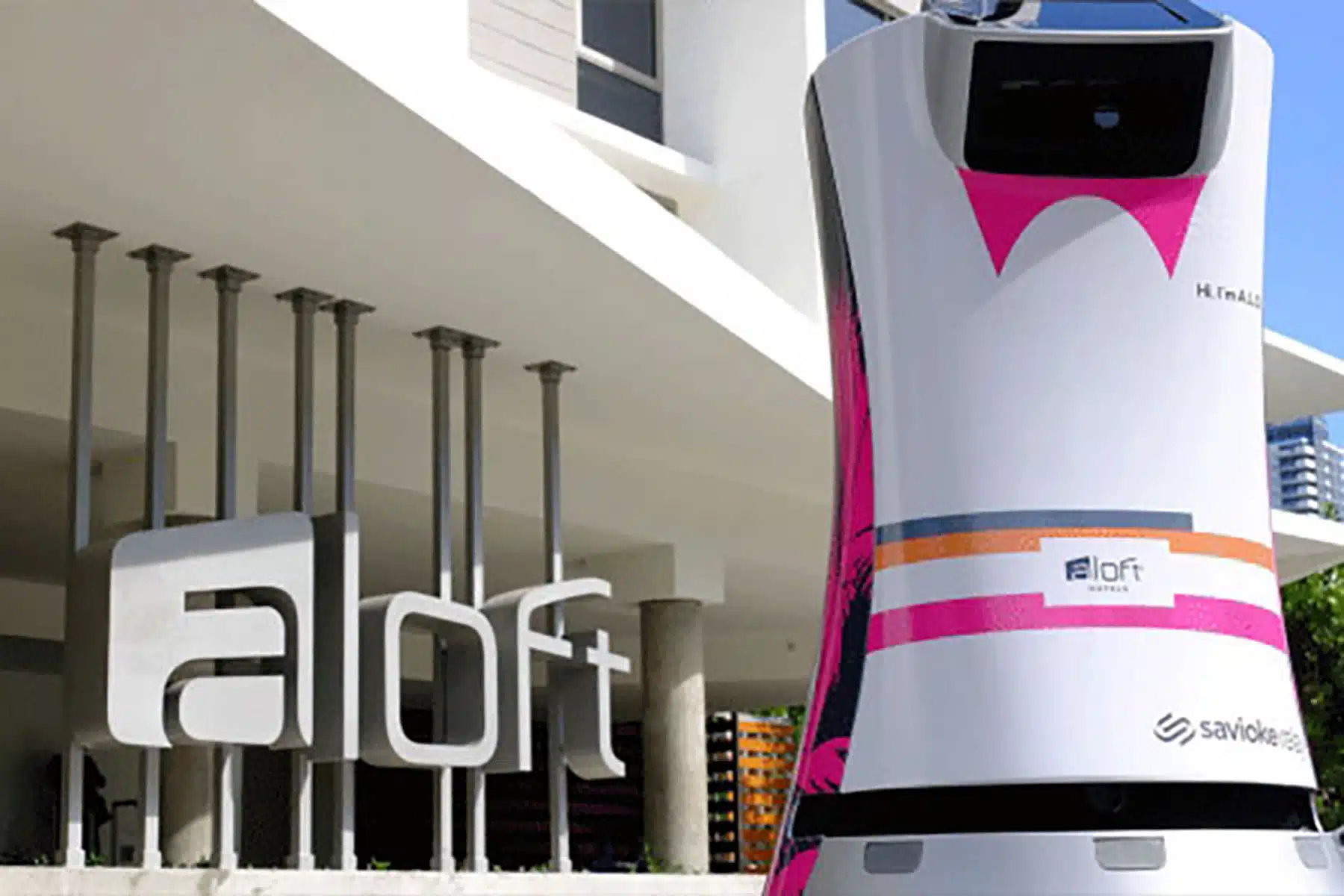The impact of artificially intelligent machines on the future job market has been gaining significant attention in recent years. According to a recent report by the McKinsey Global Institute, an estimated 50% of all current work activities might be automated by 2055. 
Room Service
Room service certainly seems to be a prime candidate for some level of automation. The job relies heavily on efficiency, planning and attention to detail – qualities that machines excel at. Room service robots such as Relay are already being trialled in a select number of U.S. hotels to carry out deliveries to guest rooms. After receiving an order, hotel staff load items into Relay, which then navigates around the property using Wi-Fi, on-board cameras and sensors. Guests can then retrieve items from within the robots storage compartment when it reaches their door. 
In addition, five-star hotels are less likely to embrace this kind of technology. In such an exclusive environment, having a member of staff personally deliver and serve an in-room dining order is all part of the experience. Alongside housekeeping, those working in maintenance could also be one of the first to find themselves being assisted by robots. AI and Automated Fault Detection will also play a significant part in helping hotel maintenance teams with plant and equipment maintenance. 
The Front Desk
Arguably, the most important guest-facing role in a hotel is the front desk. This is the first moment a hotel gets to formally greet and welcome their guests. So the idea of automating this vital part of the experience might seem questionable. However, do all travellers want or appreciate such formalities? Many prefer making use of mobile check-in services – happy to forfeit human interaction for a speedier journey to their room. With a robot-staffed front desk, a hotel could still provide a formal greeting for those that want one, while also offering a swifter check-in process. The idea certainly isn’t unprecedented. The Henn-na hotel in Japan is staffed almost entirely by robots, including a humanoid female and a dinosaur that welcome guests on arrival and carry out check-in/check-out services.
There are clear advantages to this approach. Machines are highly adept at handling repetitive, process-driven tasks. A sufficiently advanced front desk team could offer a much more efficient service than a human when dealing with room details and booking information. But the job clearly requires other qualities beyond administrative efficiency. The value of being greeted on arrival with a genuine welcome can’t be artificially replicated. After a long and tiring journey, a smiling face can be more effective at lifting a guest’s mood than a speedy check in. In the end, the front desk might be a place where humans and machines work together, catering to the needs of all guests. In particular, AI could prove especially useful in this role by offering language recognition and translation services. A new wave of AI translators is already showing promise in this field. With continued progression in natural language capabilities, a multilingual robot catering to overseas guests would be hugely beneficial.
The Concierge
The role of the concierge could also be one that is eventually automated. At the Hilton McLean, Virginia, USA, an AI-powered robot named Connie acts as a robotic concierge. Guests can get recommendations on places to visit, tips on the local dining scene, and directions to help navigate around the property. 
In Conclusion
Certain roles including housekeeping and maintenance seem destined for some form of automation. In these areas, robots and AI could be used to help increase operational efficiency, decrease staff costs and improve the guest experience. Other jobs such as the front desk and concierge may involve a merging of roles. Tasks may be shared and distributed between humans and machines depending on the particular 


